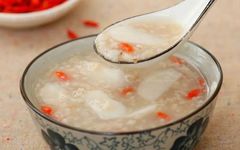Medicinal dishes are delicious foods guided by the integration of medicine, culinary arts, and nutrition theory, where medicinal ingredients and food materials are strictly matched according to formula ratios. Traditional Chinese Medicine emphasizes “preventing illness before it occurs”; a good medicinal dish not only promotes health and prevents disease but also enhances appetite and leaves a lasting impression.
1. Yang-Boosting Medicinal Dish — Yam, Job’s Tears, Goji Berries, and Water Chestnut Porridge
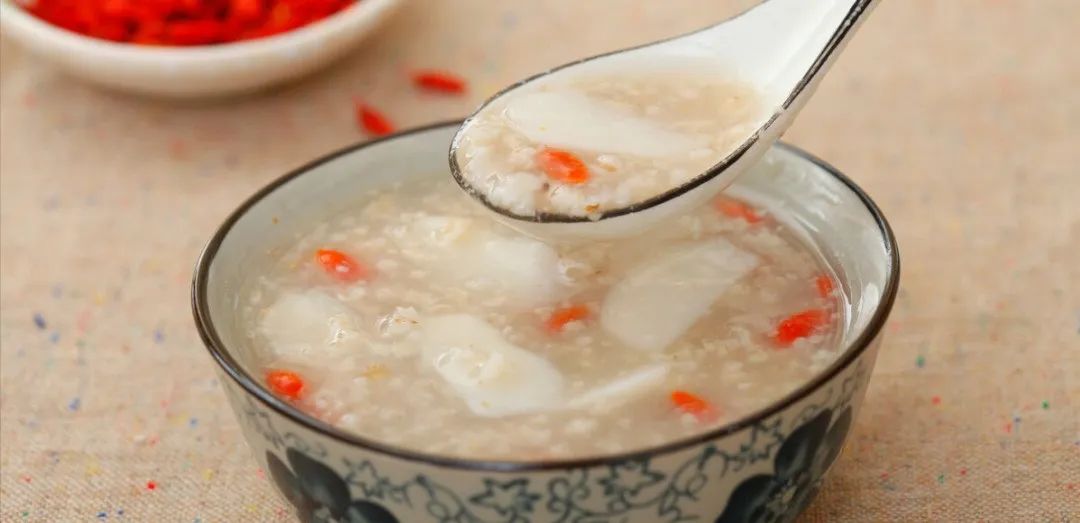
Ingredients: 50g of yam (Shan Yao), 50g of Job’s tears (Yi Yi Ren), 20g of goji berries (Gou Qi Zi), 20g of water chestnut (Qian Shi);
Preparation: Wash the above four ingredients, place them in a pot, add an appropriate amount of water, and simmer on low heat until a smooth porridge is achieved.
Effects: Tonifies Qi, strengthens the spleen, and nourishes the kidneys.
2. Yin-Boosting Medicinal Dish — Lily Porridge
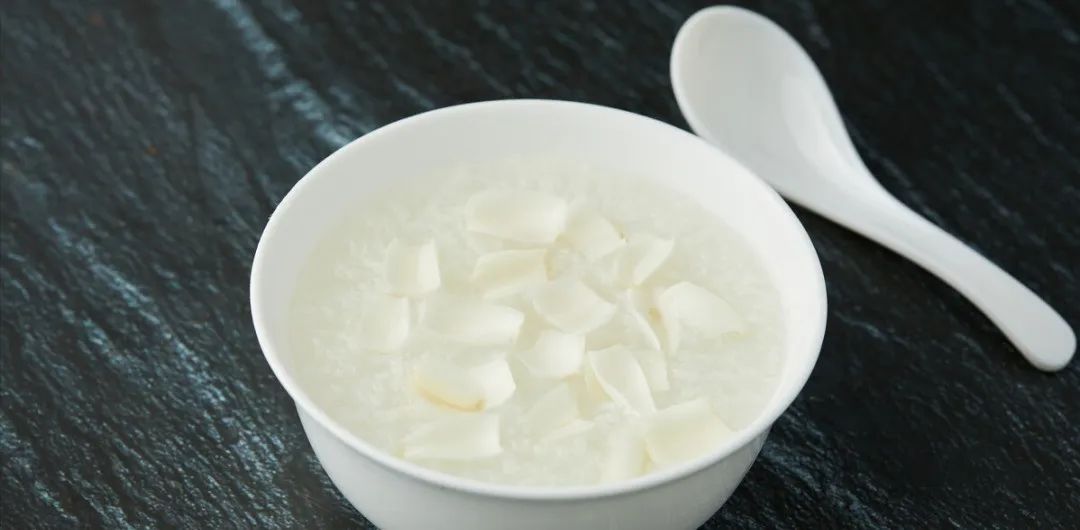
Ingredients: 50g of fresh lily (Bai He) or 30g of dried lily, 100g of japonica rice (Jing Mi), a small amount of rock sugar.
Preparation: Wash the japonica rice and place it in a pot, add an appropriate amount of water, bring to a boil over high heat, then simmer until half-cooked. Add the washed fresh lily and cook together until it becomes porridge, then add rock sugar to taste.
Effects: Nourishes Yin, moistens the lungs, stops cough, and resolves phlegm.
3. Qi-Boosting Medicinal Dish — Astragalus Chicken Soup
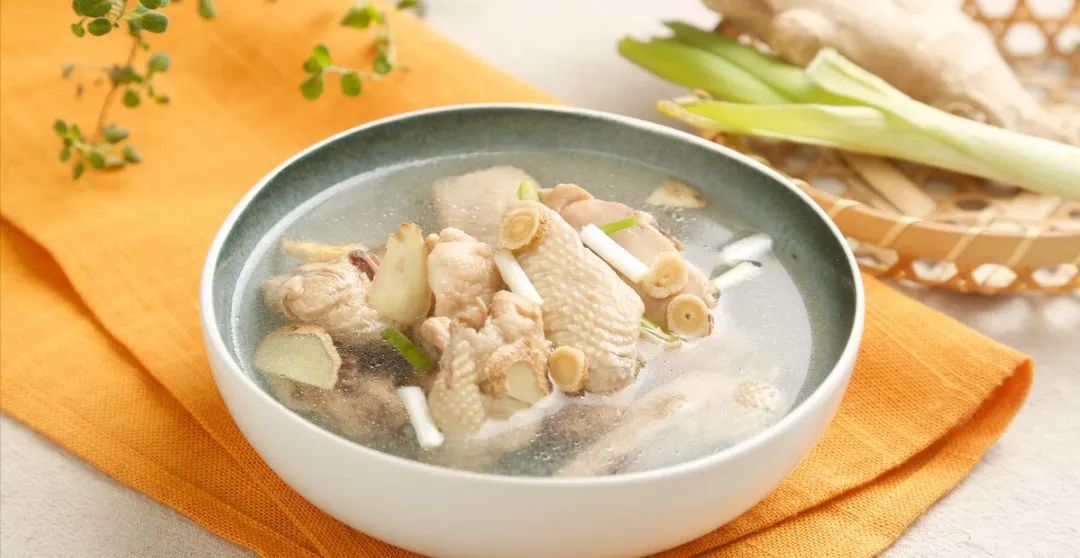
Ingredients: 30g of astragalus (Huang Qi), one hen, appropriate amounts of green onion, ginger, and garlic.
Preparation: Clean the hen, remove feathers and internal organs, wash it, place the astragalus inside the hen, put it in a pot, add water along with ginger, green onion, garlic, and salt, and simmer until the chicken is tender.
Effects: Tonifies the lungs, boosts Qi, strengthens the spleen, and nourishes the stomach.
4. Blood-Boosting Medicinal Dish — Blood Nourishing Rice
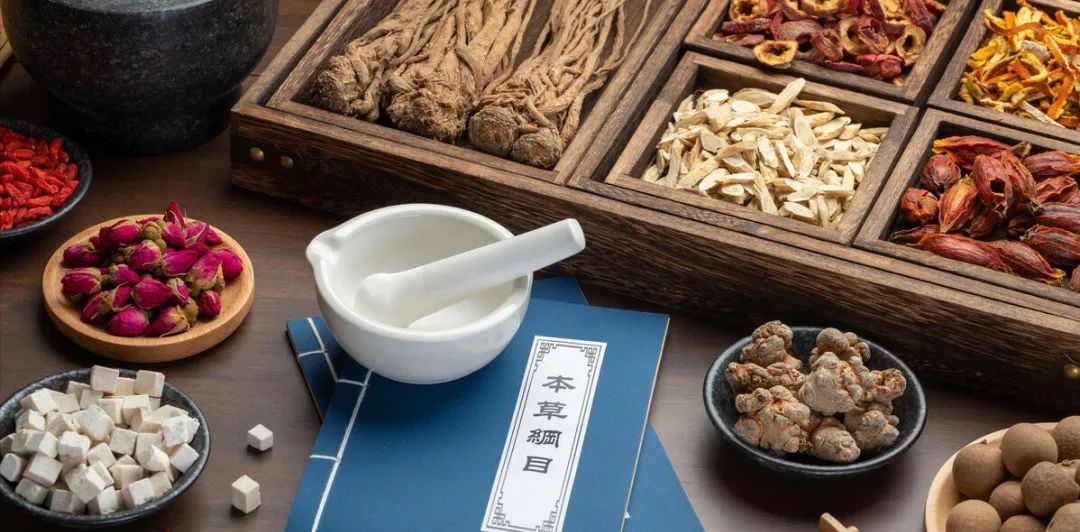
Ingredients: 10g of astragalus (Huang Qi), 5g of angelica (Dang Gui), 10 red dates (Hong Zao), 10g of longan flesh (Long Yan Rou), 20g of white lentils (Bai Bian Dou), 100g of japonica rice (Jing Mi), a small amount of brown sugar.
Preparation: First, decoct the astragalus and angelica to extract the juice. Wash and pit the red dates, and wash the longan flesh and white lentils. Place the white lentils in a pot with an appropriate amount of water and cook until half-done, then add the japonica rice, red dates, longan flesh, brown sugar, and the juice from the astragalus and angelica, mix well, and simmer until it becomes porridge.
Effects: Tonifies Qi and nourishes blood.
5. Phlegm-Resolving Medicinal Dish — Ginkgo Chicken Soup
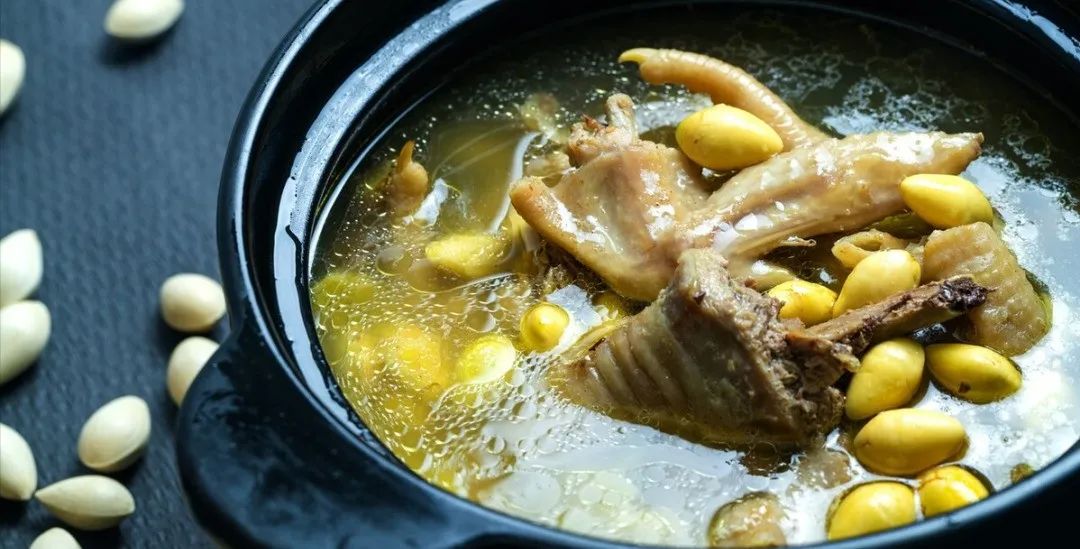
Ingredients: One old hen, 15g of ginkgo nuts (Bai Guo), 15g of lotus flesh (Lian Rou), 15g of glutinous rice (Jiang Mi), 3g of pepper.
Preparation: Place the ginkgo nuts, lotus flesh, glutinous rice, and ground pepper into the cleaned hen’s abdomen, and simmer on low heat until the chicken is tender.
Effects: Strengthens the spleen, benefits the lungs, and resolves phlegm.
6. Stasis-Resolving Medicinal Dish — Angelica and Safflower Wine
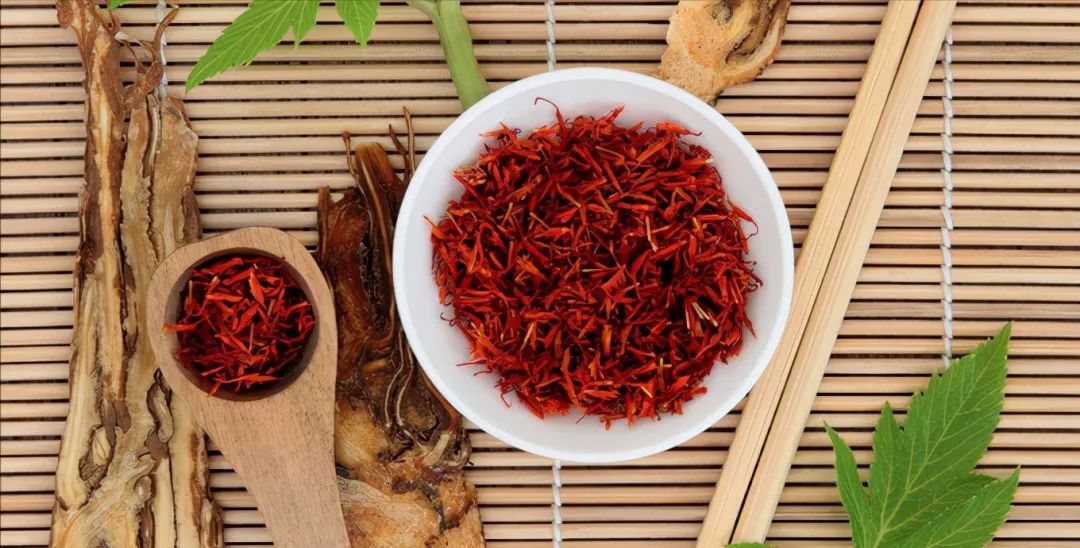
Ingredients: 20g of angelica (Dang Gui), 50g of safflower (Hong Hua), 500ml of grape wine.
Preparation: Slice the angelica and soak it with safflower in grape wine for 10 days.
Effects: Nourishes blood, invigorates circulation, and resolves stasis.
7. Liver-Soothing and Depression-Relieving Medicinal Dish — Three Flower Tea
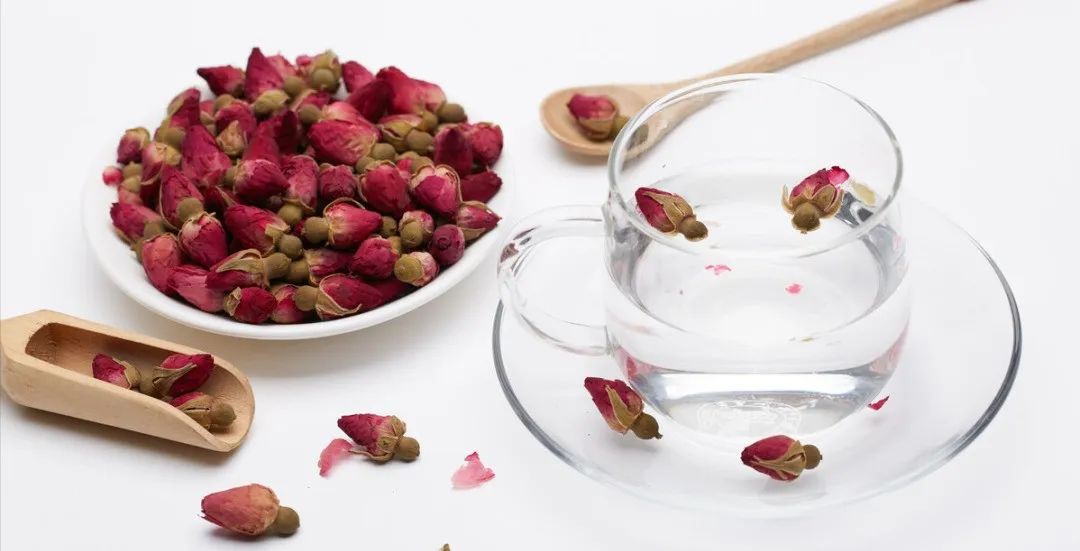
Ingredients: 7 roses (Mei Gui Hua), 3 chrysanthemum flowers (Dai Dai Hua), 3 green plum flowers (Lu Mei Hua).
Preparation: Place all three flowers in a cup and pour boiling water over them to brew.
Effects: Promotes Qi and blood circulation, soothes the liver, and relieves depression.
8. Spleen-Strengthening and Damp-Resolving Medicinal Dish — Job’s Tears and Two Beans Porridge
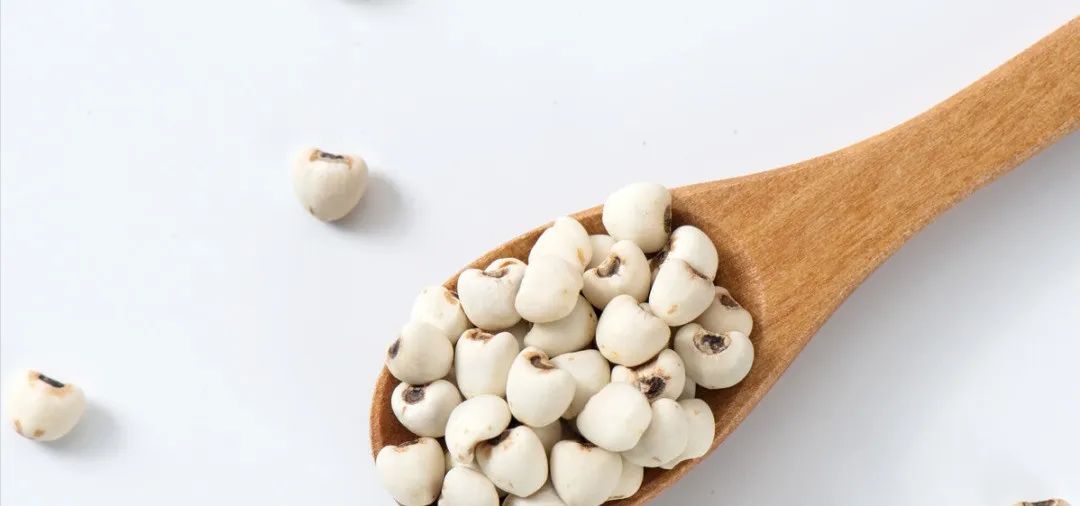
Ingredients: 50g of Job’s tears (Yi Yi Ren), 50g of red beans (Chi Xiao Dou), 50g of mung beans (Lu Dou).
Preparation: Wash the above three ingredients, place them in a pot, add an appropriate amount of water, and simmer on low heat until it becomes porridge.
Effects: Strengthens the spleen, resolves dampness, and relaxes the muscles.
Medicinal dishes should not be consumed indiscriminately. Traditional Chinese Medicine emphasizes “food and medicine share the same source,” meaning that when choosing medicinal dishes, attention must be paid to compatibility. For example, patients with liver disease should avoid spicy foods; those with heart conditions should avoid salty foods; patients with bone diseases should avoid sour and sweet foods; those with gallbladder issues should avoid greasy foods; and those with skin sores should avoid fish and shrimp.
Additionally, medicinal dishes cannot replace medical treatment. If you feel unwell, please seek medical attention promptly.
Remember Follow us!
Follow us!
Editor’s Recommended Articles
1. A Simple Herbal Tea Can Tonify Lung Qi, Spleen Qi, and Kidney Qi, Boosting Immunity
2. Waking Up Naturally Between 3-5 AM? It May Be Due to Lung Qi Deficiency; Consider These 3 Herbs to Tonify Lung Qi and Improve Insomnia
3. So Precious! Over 800 Folk Remedies, There’s No Illness That Can’t Be Treated; Save for Future Reference!
4. Can Sanqi Powder Be Eaten Regularly? Be Aware of These 10 Side Effects Before Deciding!
Like is a form of encouragement Share to spread joy

